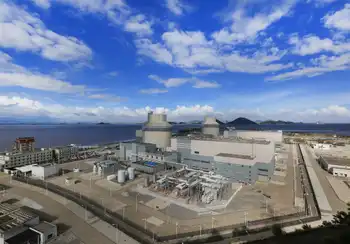Blue Ridge, others plan solar push for members
By Anderson Independent Mail
Electrical Testing & Commissioning of Power Systems
Our customized live online or in‑person group training can be delivered to your staff at your location.

- Live Online
- 12 hours Instructor-led
- Group Training Available
Spokesman Tim Mays said Blue Ridge Electric Cooperative plans to do a 250,000-kilowatt community solar farm over the next year. "We're going to construct a community solar farm sometime in the next year with the School District of Pickens County on land up by the Career and Techonology Center and Chastain Road Elementary School in Liberty," Mays said.
A study of electric co-op members around the state found strong interest in solar, but a lack of willingness to pay more for it than conventional electrical service. But 70 percent were open to participating in a community solar program with a solar farm owned and operated by their co-op.
Mike Couik, president and CEO of Electric Cooperatives of South Carolina, said the community farms planned by Blue Ridge and the other co-ops would allow members to subscribe to solar-generated electricity without putting panels on their properties.
"It means they don't have to install panels on their roof, nor do they have to worry about their construction and maintenance," Couik said. Those Blue Ridge and other co-op members who already have their own solar panels can do net metering, in which they sell electricity they generate back to Blue Ridge and it's deducted from their monthly bills. Rajendra Singh has been waiting for this day for over four decades. The Clemson professor of electrical and computer engineering began researching photovoltaics and solar electricity during the Arab oil embargo in 1973. He was recognized by the Obama administration in 2014 for his work on solar photovoltaics.
Solar panels have become cost effective ways to offset, and in some locations, eliminate reliance on electricity generated by burning coal, oil or natural gas to generate steam to turn turbines.
"It's a very stable market," said Singh. "What is happening now is the cost is going down and the market is growing exponentially. In Texas and Silicon Valley, solar is very big with municipal utilities ... some installations cost just three cents per kilowatt hour."
By comparison, electricity customers in South Carolina currently pay about 12 cents per kilowatt hour to light their homes with power generated by fossil fuels or nuclear reactors.
Improving battery technology is helping sell solar panels, too. Tesla Motors, Samsung and others are bringing batteries to market which are supposed to store enough excess electricity generated during the day from solar panels to run homes and commercial buildings overnight. Singh said that, for all of the advances, old thinking lingers when it comes to big utility companies and public policymakers.
"They will say they love solar, but they have invested so much in other technologies. South Carolina and Georgia are the only states doing new nuclear construction -- no one else is even considering it," said Singh.
Singh referred to the reactors under construction at Georgia Power's Plant Vogtle site on the Savannah River and the V.C. Summer site run by SCE&G and Santee Cooper near Columbia. Both projects are behind schedule and billions over their intended construction budgets.
Building large power plants and sending alternating current over hundreds of miles of high voltage wires are slowly giving way globally to community solar and direct current transmission, said Singh, because they are faster and cheaper routes to rural electrification for developing countries across Africa and Asia.











